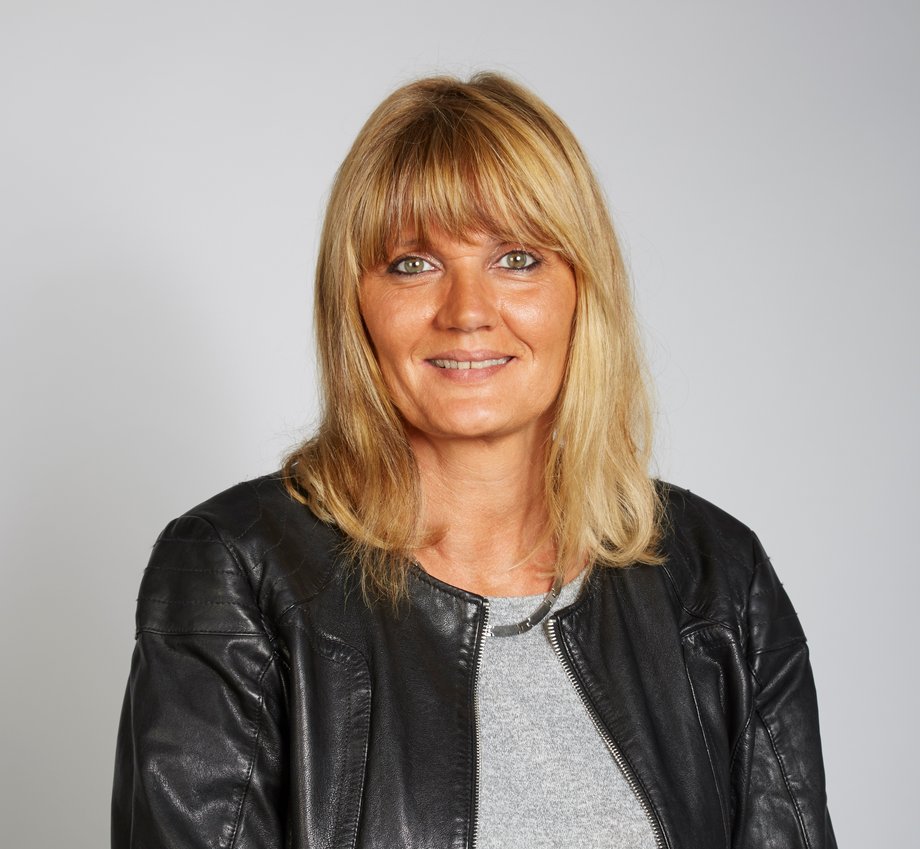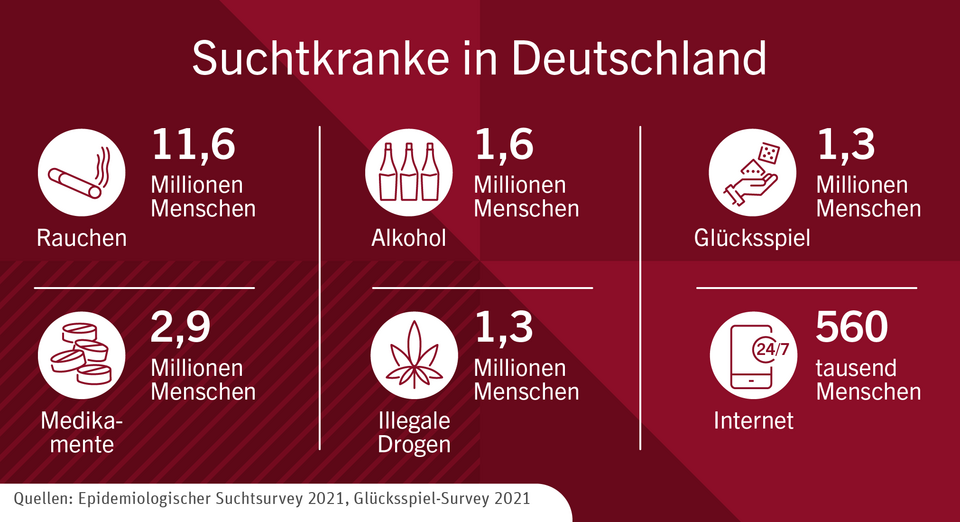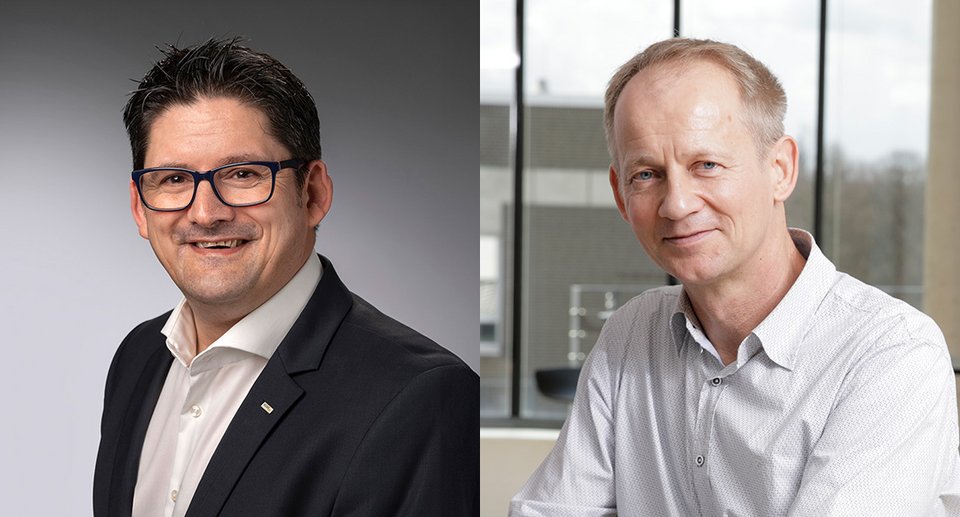
When drinking, taking pills or gambling becomes an addiction, everyone suffers at work: the affected employees, colleagues, superiors - and not least the work itself. We provide support through employees with extensive additional training: the company addiction officers, such as Claudia Kottke-Kynast.
 one: Claudia, you've been an addiction officer at toom for around twelve years - a woman from the very beginning, so to speak. What motivated you back then?
one: Claudia, you've been an addiction officer at toom for around twelve years - a woman from the very beginning, so to speak. What motivated you back then?
Claudia Kottke-Kynast: Yes, in addition to my "normal" job as Chairwoman of the Works Council, I completed the additional training to become an addiction officer at toom. Twelve years ago I was the first, and now there are around 20 of us at toom. My goal from the outset was to ensure that addiction was talked about openly within the company. Whether it's gambling, drugs, alcohol or whatever: nobody should feel ashamed or hide. Addiction is a disease - and you can only treat it if you talk about it.
one: What has changed in recent years when it comes to dealing with the topic of addiction?
Claudia Kottke-Kynast: The topic is now dealt with openly at toom. That fits in with our corporate culture of openness, and I'm really happy about that. It certainly has something to do with the fact that times have changed: Our employees have become significantly younger. In the past, it used to be the case that people kept quiet for years and were "dragged along". Sometimes until they were due to retire.
one: And the type of addiction? Has anything changed there?
Claudia Kottke-Kynast: Yes, addictive behaviour has also changed. For a while, alcohol and smoking - i.e. smoking pot - seemed to be more or less off the table. Now there's a kind of revival: young people are starting to drink and smoke again. Especially here in Berlin, you can buy everything everywhere. Smoking pot has become completely normal again.
one: Hasn't digital gambling addiction increased rapidly in times of corona?
Claudia Kottke-Kynast: That was the case, mainly among young people. But people don't play much on their mobile phones anymore. If they do, it's on a PC, and then logically at home. People don't gamble on the market PC because everything is traceable there. And certain things are also blocked.
I think that's a legacy of corona, where we all had to spend most of our time at home... It's gone so far that some young people can no longer pay their electricity bills. Unfortunately, we only realise this when the enforcer comes and seizes our salary. We've actually already had that.
one: Have you noticed any other effects of the coronavirus?
Claudia Kottke-Kynast: A positive one, actually: I have the impression that Corona has reduced the number of people eating pills because they are ill. Many people are now saying to themselves: it's better if I stay at home for three days instead of dragging myself to work and swallowing pills for pain or fever. At some point, the tablets may no longer work - or even become an addiction. My impression is that many colleagues have become more aware of the topic of "health" due to coronavirus. That's a positive effect.
„Many of those affected are basically grateful when the topic is raised“Claudia Kottke-Kynast
But there are also very problematic effects of corona: if psychological support is needed for addiction, the biggest problem is that you can't get appointments! That's a disaster. We have built up a network of addiction counselling centres, but they have all reached their limits, just like the addiction clinics.
one: How do affected colleagues react when they are approached about their addiction?
Claudia Kottke-Kynast: Many colleagues are basically grateful that the topic is brought up. At first they often deny it, but then that changes and they say: I'm ashamed! Then we say: All right, you don't need that. It's an illness! Many people have never seen it that way before. And it helps if someone helps you to cure the illness.
one: What does that mean in concrete terms: what measures do you take?
Claudia Kottke-Kynast: Addiction counsellors have to speak out clearly: For example, it has to be said quite clearly: You have to appear sober in the store. We can't simply blow or have someone tested, but there are consequences if someone is caught again.
The employees actually go along with it. Especially when you explain to them what the background is: accident prevention, for example, doesn't apply if someone is driving a pallet truck under the influence of alcohol or drugs. And if something happens, they feel guilty for the rest of their lives and don't get a pension... That's when people start to wake up.
Support is very important, but so is personal responsibility. If you go to a counselling centre, for example, you have to show proof without being asked that you have been there and are in regular contact. This is necessary in order to rebuild trust between employer and employee.
But of course we provide support and guidance. This is very important and I think it works quite well. We haven't had a case in recent years where someone had to go into rehab. And we have never had to dismiss an employee due to addiction problems.
one: You addiction officers certainly can't handle - and above all recognise - all these cases on your own. Do you pass on your knowledge internally - to senior managers, for example?
Claudia Kottke-Kynast: Yes, senior managers are also trained. This measure has evolved over the years - we have guidelines for this, for example. Every SBU has its own, but ultimately the content is the same. It is also part of our job as addiction officers to offer our help to new senior managers: If you notice something, get in touch!
In 14 days' time, we will be introducing other addiction officers who advise affected employees at PENNY and REWE, among others.
Whether alcohol, stimulants, cannabis, one-armed bandits or video balling - the following applies to all of them: addiction is an illness and anyone who is ill needs help. Those who work at REWE Group receive clearly regulated support - from senior managers and company addiction officers. A brief overview.
The senior manager's duty of care
Care and intervention are the main tasks of senior managers towards employees with addiction problems. This acutely includes the duty to ensure that "intoxicated" employees are not only not deployed, but also get home safely. In accordance with the general works agreement (see slider) that "informed confidential discussions and offers of help should take precedence over sanctions", there is a kind of roadmap for senior managers, starting with an initial one-to-one care meeting and continuing - in the event of breaches of duty under the employment contract - with five step-by-step meetings, at which the addiction officers are also present.
Our company addiction officers
The company addiction officers are the first point of contact at REWE Group for employees who are susceptible to addiction. As a person of trust, they act as more than just an important link between those affected, the employer and professional addiction support organisations. They ensure individual counselling and support for the employees concerned and have an advisory role vis-à-vis HR managers. They also take part in measures for workplace addiction prevention and health promotion.
In cooperation with DAK-Gesundheit, REWE Group trains its own employees as company addiction officers. Employees have the legal right to seek counselling from them at any time, even during working hours. Senior managers can also seek advice from the addiction officers on how to deal with affected employees and recommend counselling to their employees. All these counselling sessions are subject to confidentiality.
Contact addiction counsellors
You can find the contact details of the addiction counsellors here:
- Gemeinsam.topfit, the digital platform for occupational health management
- Pennypedia ("addiction officer" in the search field)
- Orange ("Suchtbeauftragte" in the search field)
- Inside (My world of work/benefits/health and social issues)
- Your responsible works council
Further links
DigiAddiction platform on various addictive disorders from the Federal Ministry of Health for those affected and their relatives.
Information and addresses of self-help/online groups
Deutsche Hauptstelle für Suchtfragen e.V. (German Centre for Addiction Issues): in their addiction help directory you will find all local addiction counselling facilities, the tab "Addiction and Migration" provides an overview of information brochures in many different languages.














